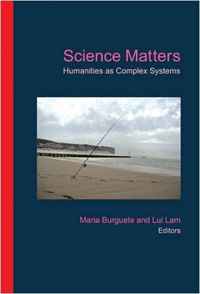All earnest and honest human quests for knowledge are efforts to understand Nature, which includes both human and nonhuman systems, the objects of study in science. Thus, broadly speaking, all these quests are in the science domain. The methods and tools used may be different; for example, the literary people use mainly their bodily sensors and their brain as the information processor, while natural scientists may use, in addition, measuring instruments and computers. Yet, all these activities could be viewed in a unified perspective - they are scientific developments at varying stages of maturity and have a lot to learn from each other.That "everything in Nature is part of science" was well recognized by Aristotle, da Vinci and many others. Yet, it is only recently, with the advent of modern science and experiences gathered in the study of statistical physics, complex systems and other disciplines, that we know how the human-related disciplines can be studied scientifically. "Science Matters" is about all human-dependent knowledge, wherein humans (the material system of Homo sapiens) are studied scientifically from the perspective of complex systems. It includes all the topics covered in the humanities and social sciences. Containing contributions from knowledgeable humanists, social scientists and physicists, the book is intended for those - from artists to scientists - who are curious about the world and are interested in understanding it with a unified perspective. Это и многое другое вы найдете в книге Science Matters: Humanities As Complex Systems (Maria Burguete, Lui Lam)
Science Matters: Humanities As Complex Systems Maria Burguete, Lui Lam
Подробная информация о книге «Science Matters: Humanities As Complex Systems Maria Burguete, Lui Lam». Сайт не предоставляет возможности читать онлайн или скачать бесплатно книгу «Science Matters: Humanities As Complex Systems Maria Burguete, Lui Lam»
